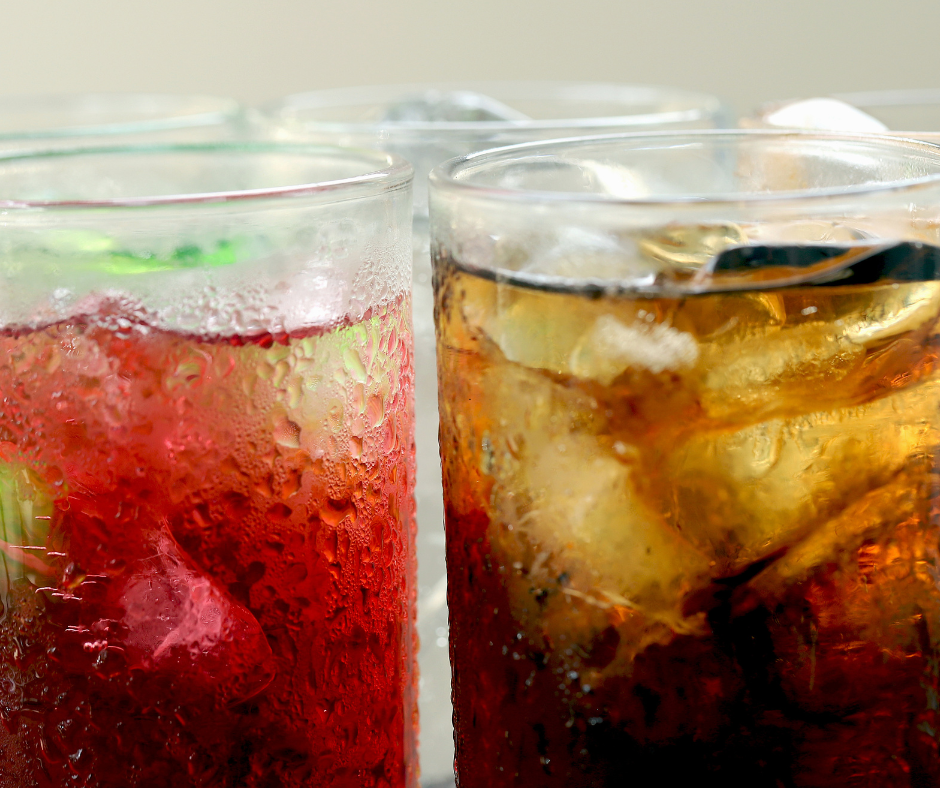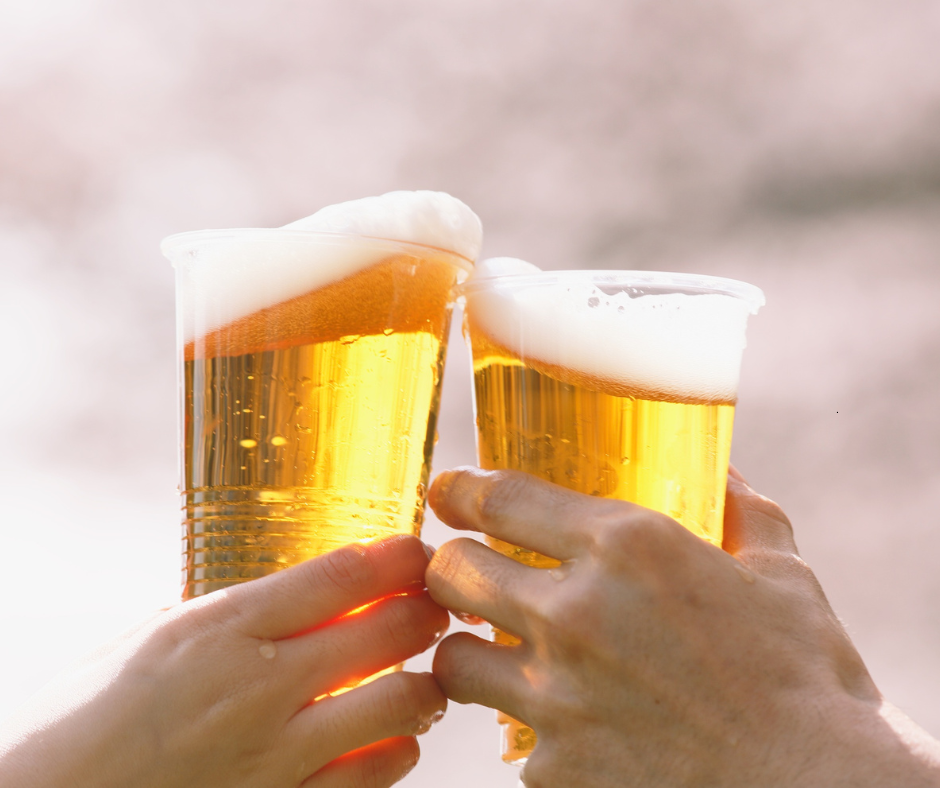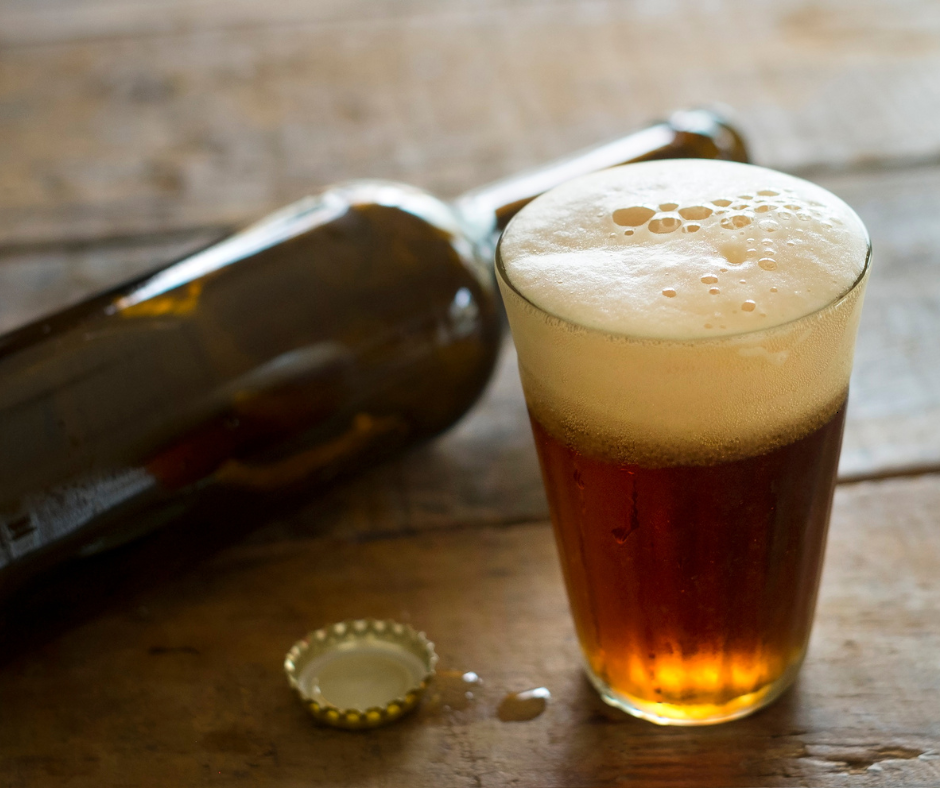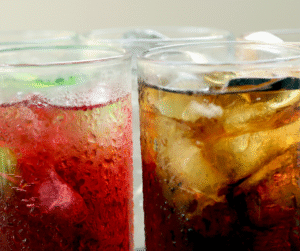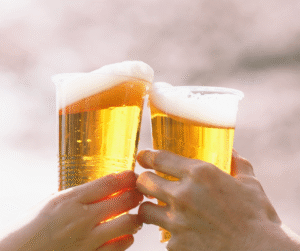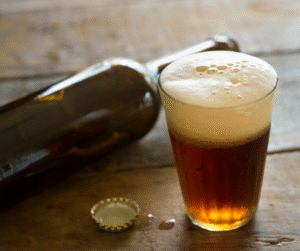You’re behind the bar on a busy night, pouring pints as usual — but something’s off. A customer returns their drink, saying it tastes flat. The bubbles are gone. It looks lifeless in the glass. The question they ask next is one you’ve likely heard before:
“Does flat beer still have alcohol?”
It’s a fair question, and one that also comes up in breweries, cellars, and even home-brewing setups. Whether you manage a pub, run quality checks in production, or just enjoy the science behind beer, it’s worth understanding the difference between carbonation and alcohol content.
Flat beer still contains alcohol. The fizz might be gone, but the alcohol — created during fermentation — stays in the liquid. The loss of CO₂ doesn’t affect a beer’s strength. It can, however, change how it tastes, feels, and smells.
In this article, we’ll break the topic down into simple, practical terms. You’ll learn:
- What flat beer is and how it happens
- How alcohol and carbonation are formed during brewing
- Whether beer loses alcohol over time
- Why flat beer tastes weaker (even when the ABV is unchanged)
- How CO₂ quality and gas systems can impact taste and texture
- Whether flat beer is still safe to drink
- What all of this means for pubs, breweries, and anyone handling beer
Let’s clear the confusion — and help you keep your beer tasting just as it should.
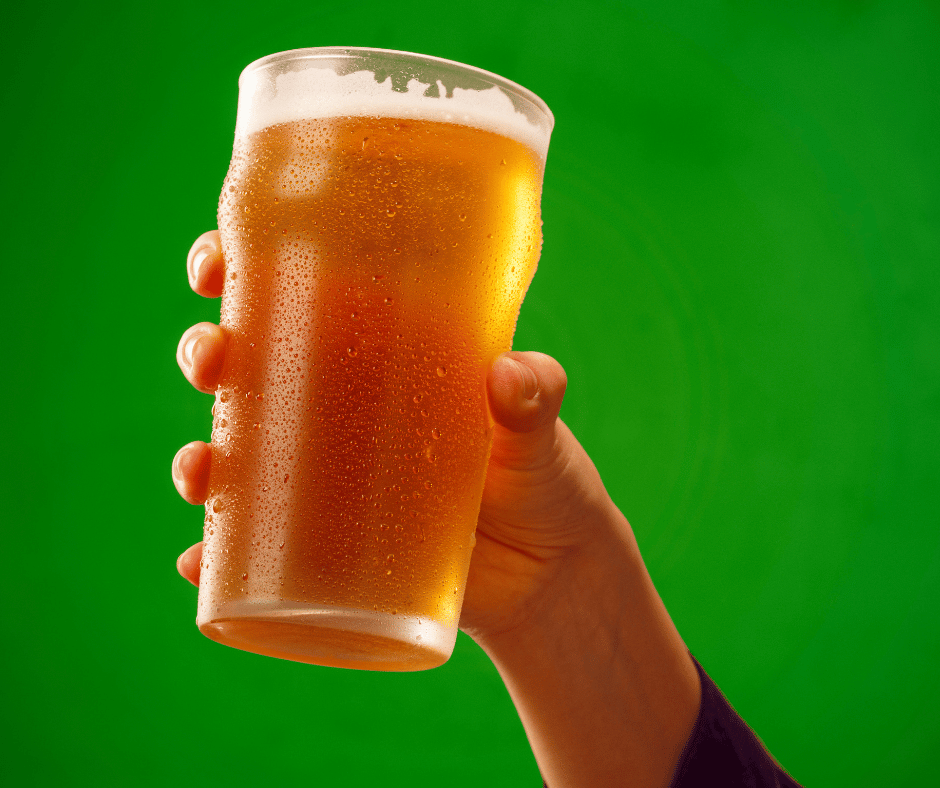
What Is Flat Beer?
Flat beer is beer that has lost its carbonation – the CO₂ bubbles that create its fizz, foam, and lively mouthfeel. Without this gas, beer pours lifelessly, lacks aroma, and often tastes stale. It’s a problem both drinkers and hospitality professionals notice immediately, and it usually points to issues somewhere in the handling or storage process.
But why does beer go flat in the first place? There are several key causes, and many of them relate directly to CO2 purity measurements, grade and quality.
Common Reasons Beer Goes Flat
- Natural Degassing
Once a bottle or keg is opened, CO₂ begins to escape. Even when sealed, beer slowly loses gas over time. That’s why storage conditions matter. Temperature swings or exposure to air will accelerate the process. - Poor Sealing or Packaging
If a bottle cap, keg fitting, or can seam isn’t properly sealed, gas will leak out. Even small imperfections can make a big difference. Flat beer from new packaging often points to a quality control issue during filling or sealing. - Open or Improper Storage
Leaving beer exposed to air — even for a short time — allows CO₂ to escape and oxygen to enter. Oxidation dulls flavours and affects freshness, while the loss of carbonation reduces the beer’s texture. - Faulty Dispensing Equipment
In hospitality settings, draught systems are a common source of problems. If the CO₂ regulator is set too low, or if there’s a leak in the gas line, the beer will not be pushed with enough pressure. This leads to soft pours and reduced head retention. - Poor-Quality or Contaminated CO₂
This is often overlooked – but vital. Even if pressure is correct, impure or low-grade CO₂ can affect how gas interacts with the beer. Contaminants like benzene, sulphur compounds or oil residues can suppress proper carbonation or introduce off-flavours.
This is where Sure Purity plays a critical role. Using a Carboguard polishing filter ensures that only clean, beverage grade CO₂ enters your beverage system. It removes harmful impurities before they reach the beer and helps maintain the co2 purity. This protects taste and consistency in all of your drinks.
While some flatness is intentional — such as in cask ales or certain craft styles — most beer is designed to be served with a crisp, lively carbonation. If you’re dispensing flat beer, something in the system isn’t right. And more often than not, the problem starts with CO₂ control.
How Carbonation and Alcohol Are Created in Beer
Beer gets both its alcohol and its fizz from the same biological process: fermentation. This is the stage where yeast consumes sugars in the malted grains and produces two key by-products — ethanol (alcohol) and carbon dioxide (CO₂).
Primary Fermentation: Where Alcohol Is Born
During primary fermentation, brewers add yeast to the wort (a sugary liquid extracted from malted barley). As the yeast consumes the sugars, it releases:
- Ethanol, which gives the beer its alcohol content
- CO₂, which dissolves into the liquid and begins the carbonation process
This stage is responsible for the majority of the beer’s alcohol by volume (ABV). Once the yeast has done its job, it’s removed or deactivated to stop further fermentation.
Carbonation: Natural or Forced
Carbonation can happen in two ways:
- Natural Carbonation
In some beers — especially bottle-conditioned or cask ales — a small amount of sugar and yeast is added before final packaging. This triggers a secondary fermentation inside the bottle or keg, naturally creating CO₂ that dissolves into the beer under pressure. - Forced Carbonation
Most commercial beers use forced carbonation. After fermentation is complete, CO₂ is injected directly into the beer under pressure in a sealed vessel. This allows for precise control over carbonation levels and consistency across batches.
Why CO₂ Addition Matters
Even though alcohol is present after fermentation, it’s the added CO₂ that gives beer its fizz, head, and refreshing mouthfeel. Without it, the beer feels flat and lifeless — even if the ABV is unchanged.
That’s why carbonation is so closely monitored in modern brewing. And it’s also why CO₂ purity is vital. Impure gas can disrupt the carbonation process or leave behind unwanted flavours. Sure Purity’s filtration systems ensure only clean, food-grade CO₂ enters the beer at this stage — protecting both the taste and integrity of the final product.
Does Beer Lose Alcohol When It Goes Flat?
No – beer does not lose alcohol when it goes flat. The loss of carbonation has no effect on the drink’s alcohol content.
Here’s why: alcohol in beer is ethanol, a liquid that remains dissolved in the beer after fermentation. Carbon dioxide (CO₂), on the other hand, is a gas. When a beer goes flat, the CO₂ escapes, but the ethanol stays right where it is — in the liquid.
From a brewing science perspective, this makes sense. CO₂ is added to beer for texture, head retention, and aroma release, but it doesn’t carry alcohol with it when it leaves the liquid. Once the beer has finished fermenting, its ABV (alcohol by volume) is fixed and will remain stable — even if the beer goes flat.
Flat beer might taste dull, stale, or lifeless, but it still contains the same amount of alcohol it did when it was fresh. The flavour and mouthfeel change, but the strength stays the same.
So if someone asks whether alcohol is lost when beer goes flat, the answer is clear: no. The alcohol is still there, it’s the bubbles that are missing.
Factors That Can Affect Alcohol Content Over Time
Many people believe that beer loses its alcohol if left too long — especially if it’s flat or past its best-before date. In reality, alcohol content remains mostly stable unless the beer is exposed to extreme conditions over a long period.
What Actually Happens Over Time?
When beer is stored improperly or exposed to the open air, it undergoes chemical and microbial changes that affect its flavour, not its strength. The main factors include:
- Oxidation – When oxygen gets into the beer, it reacts with compounds in the liquid. This can create stale, cardboard-like flavours and reduce aroma, but it doesn’t remove ethanol.
- Microbial contamination – If a beer is unpasteurised or stored in unclean conditions, bacteria or wild yeasts may spoil the beer. This can cause sourness or cloudiness, but the alcohol level remains unless fermentation continues (which is rare in packaged beer).
- Poor storage conditions – Warm environments or exposure to light can break down hop compounds and degrade flavour. However, these factors have little effect on ethanol unless the beer is left open for days.
- Ethanol evaporation – Alcohol can evaporate into the air if beer is left unsealed. But in sealed bottles, cans, or kegs, this loss is negligible — especially over short periods.
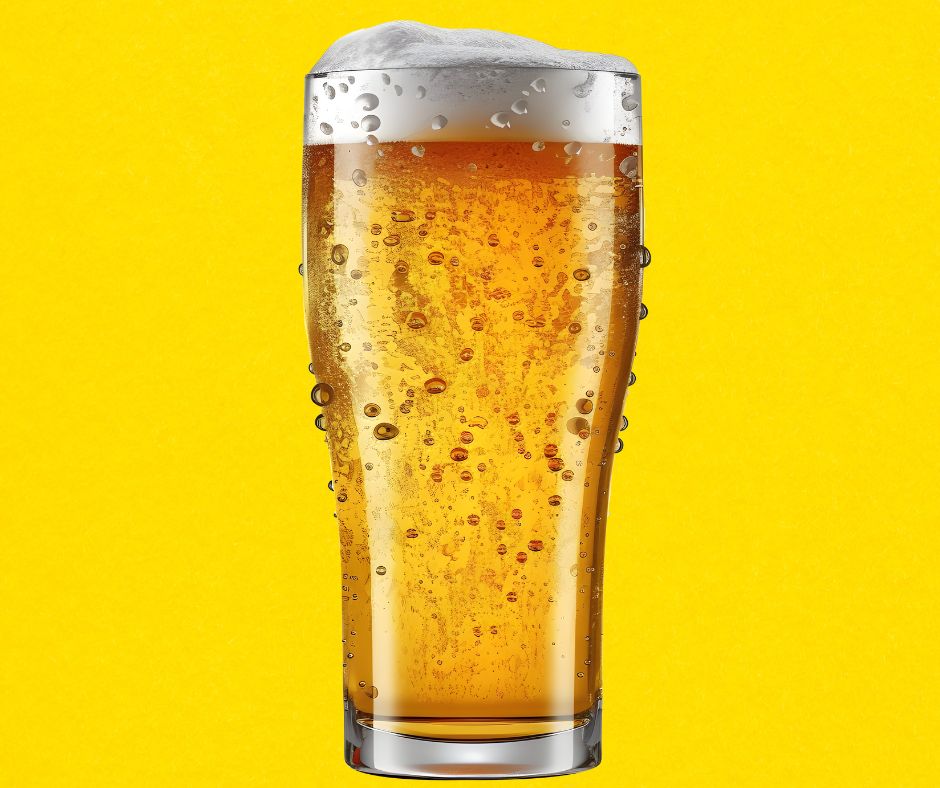
The Takeaway
Beer doesn’t lose its alcohol over time — but it can lose its character. What changes most is the flavour, aroma, and texture, especially when beer is exposed to air, poor storage, or contaminated gas lines.
That’s where carbon dioxide quality matters.
At Sure Purity, we help brewers and hospitality venues protect the integrity of their beer through advanced CO₂ filtration. Our systems remove harmful contaminants that can affect taste, aroma, and foam stability. Even if the alcohol content stays the same.
- For breweries and large-scale setups, our Carboguard system offers robust, multi-stage protection for beverage gas lines.
- For pubs, bars, and fast-food chains, the compact Carboguard Mini delivers the same high-quality gas filtration in a space-saving design.
When your CO₂ is clean and your system is properly maintained, you’re not just preserving carbonation. You’re protecting the full drinking experience – and your brand reputation.
Flat Beer and Beer Quality: Taste, Texture and Perception
Even though flat beer still contains alcohol, it doesn’t taste the same as when it’s fresh. The difference is immediately noticeable — and usually disappointing.
Flat beer has a dull mouthfeel, reduced aroma, and often no head when poured. It can seem lifeless, thin, and stale. The carbonation is key to what makes beer feel crisp and refreshing. Without it, the sensory experience changes entirely.
Carbon dioxide (CO₂) plays a bigger role than most people realise. It doesn’t just add bubbles — it lifts aroma compounds out of the beer and into the air, enhancing smell and flavour. It also adds a slight bite or tingle on the tongue, which balances sweetness and sharpness. Without CO₂, the beer feels flatter both physically and in terms of flavour.
This shift in perception is why flat beer often feels weaker, even though the ABV remains unchanged. It’s not the alcohol that’s missing — it’s the texture and freshness that usually signal a good pint.
How CO₂ Purity and Dispensing Systems Impact Beer Quality
When it comes to serving great beer, the quality of your CO₂ matters just as much as the pressure behind it. High-purity co2 plays a key role in maintaining carbonation, preserving taste, and protecting the sensory experience from keg to glass.
In many bars, breweries, and restaurants, the focus is often on the draught system itself — regulators, lines, coolers, and taps. But what flows through those lines can have just as much of an impact. If the CO₂ used to push or carbonate the beer is contaminated, it can lead to:
- Flat or lifeless pours
- Off-flavours or chemical smells
- Poor head retention
- Unbalanced mouthfeel
- Customer complaints and wasted stock
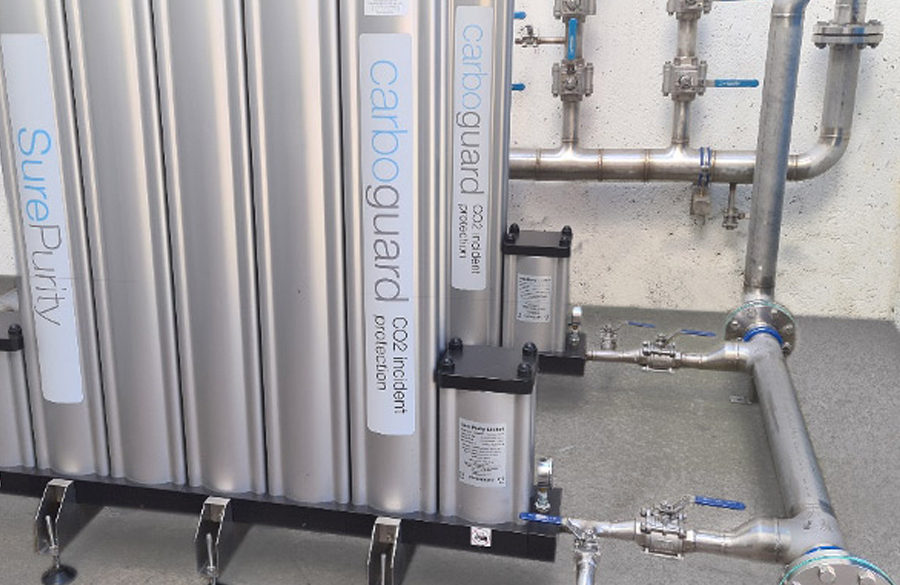
Common contaminants found in beverage gas include benzene, sulphur compounds, hydrocarbons, and residual oils. Even trace amounts of these can affect how a beer tastes, smells, and pours. That’s especially true in systems where CO₂ is in constant contact with the product — like in post-mix setups or direct-draw lines.
This is where our co2 filtration technology makes a difference.
- The Carboguard is a multi-stage CO₂ polishing filter designed for large-scale beverage operations. It removes harmful trace contaminants to ensure only clean, food-grade gas reaches your product.
- The Carboguard Mini offers the same advanced protection in a compact format, ideal for bars, pubs, and hospitality chains using draught systems or post-mix equipment.
By installing a CO₂ filter in your gas line, you reduce the risk of flavour compromise. You protect carbonation levels, and keep your beer tasting as the brewer intended. It’s a small addition to your system, but one with a huge impact on quality and consistency.
FAQ’s
Can impure CO₂ cause beer to go flat?
Yes, impure CO₂ can negatively affect beer carbonation and head retention. Contaminants like sulphur compounds, benzene, or hydrocarbons can disrupt how CO₂ interacts with the beer, leading to flat pours and off-flavours. Using a certified gas filtration system, like Carboguard, ensures only clean, food-grade gas enters your dispensing system.
Why do some beers pour flat even with correct pressure settings?
Even with the correct pressure, beer can pour flat if the CO₂ supply is contaminated, lines are dirty, or the temperature is inconsistent. Draught systems must be regularly maintained, and the gas used should be filtered to prevent trace contaminants that affect taste, aroma, and carbonation. Sure Purity filters help resolve these hidden issues at the gas supply point.
How can I tell if my gas supply is affecting beer quality?
Signs of gas-related issues include flat pours, inconsistent head, or chemical taints in the beer. If you’ve ruled out equipment and cleaning problems, the issue may lie in the gas itself. Installing a gas filter like Carboguard Mini is a simple way to remove contaminants and confirm gas purity.
Do CO₂ filters help with taste as well as carbonation?
Yes, CO₂ filters help maintain both carbonation and flavour integrity. Impurities in beverage gas can introduce unwanted aromas or suppress the natural taste profile of the beer. Sure Purity’s filtration systems remove these contaminants, supporting consistent quality and helping breweries and hospitality venues deliver beer as intended.
Should I use a polishing filter in my draught or kegging system?
If you serve or produce beer using pressurised CO₂, a polishing filter is highly recommended. It acts as the final line of defence against gas-borne impurities that can impact product quality. Carboguard and Carboguard Mini are designed specifically for beverage systems, protecting taste, aroma, and carbonation from source to serve.
Flat beer still contains alcohol — but for breweries, bars, and beverage professionals, that’s not the only measure of quality. When carbonation is lost, so is the freshness, texture, and overall drinking experience that customers expect.
Preserving that experience means paying close attention to how your beer is stored, dispensed, and gassed. CO₂ purity plays a vital role, and even trace contaminants can spoil flavour, suppress aroma, or lead to flat pours. You can read more about what causes draught beer to go flat in our dedicated guide.
Key takeaways:
- Flat beer still contains alcohol, but the taste and texture decline
- Carbonation enhances aroma, mouthfeel, and freshness — not just fizz
- Dispensing faults or poor CO₂ quality often cause flat or off-flavoured beer
- Gas filtration is essential for protecting beer integrity
- Sure Purity provides industry-standard filtration for breweries, pubs, and hospitality systems
At Sure Purity, we help producers and hospitality operators maintain the highest standards with our Carboguard and Carboguard Mini filters. Designed for beverage systems, they remove harmful impurities from CO₂ lines. This helps to protect taste, consistency, and customer satisfaction. Glass after glass.

